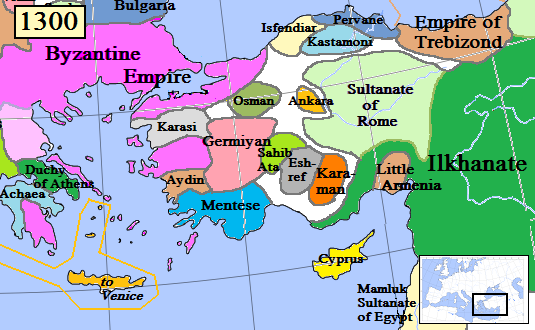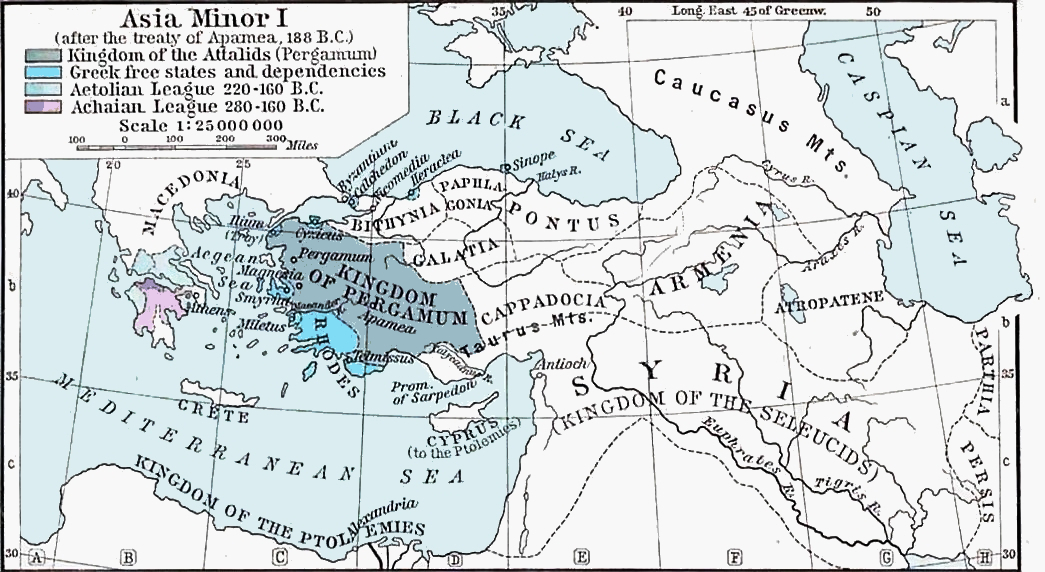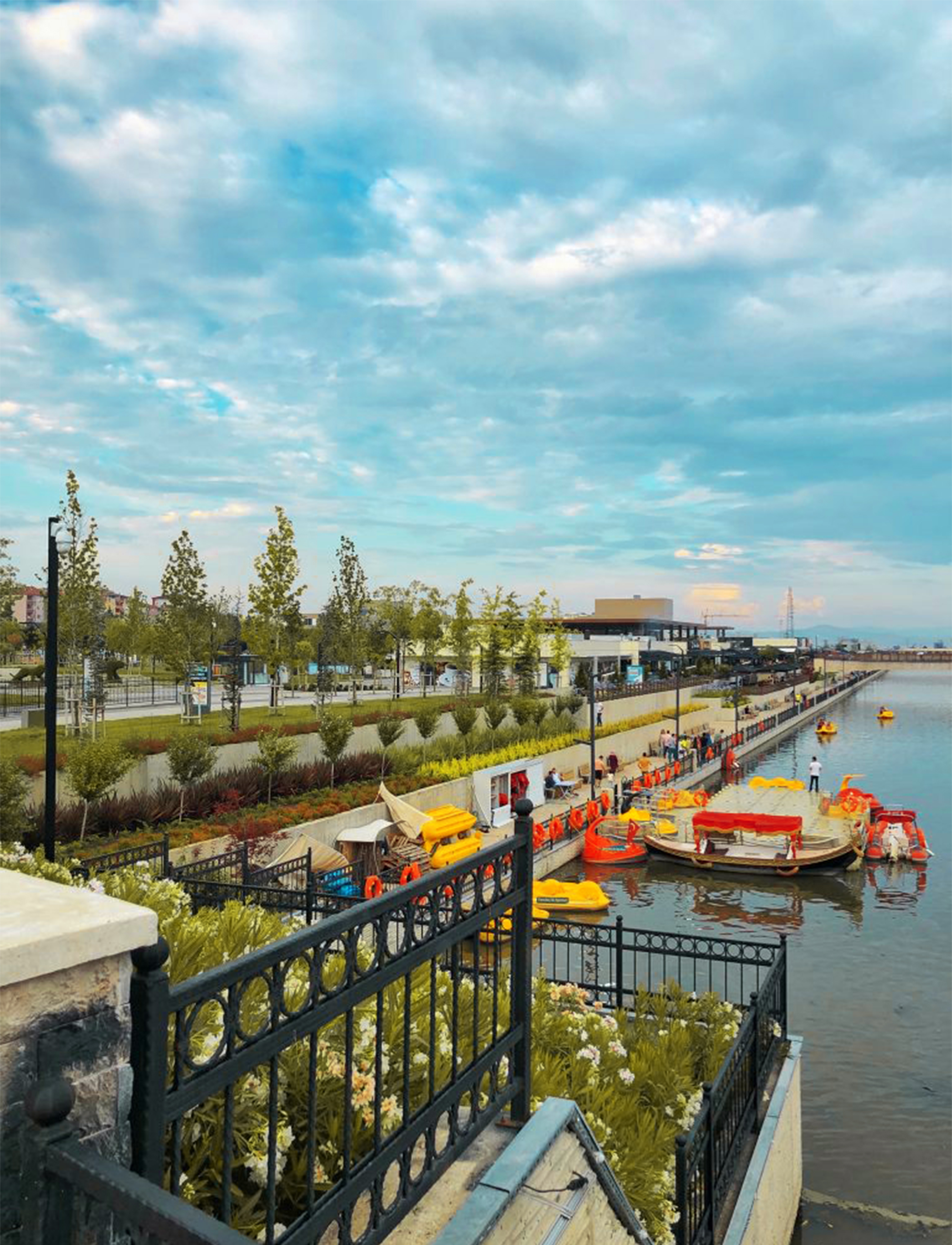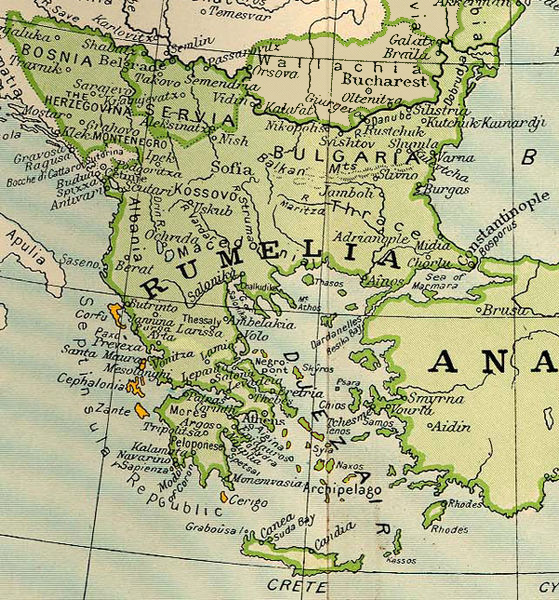|
Karasid
The Karasids or Karasid dynasty ( Ottoman قرا صي; Modern Turkish ''Karesioğulları'', ''Karesioğulları Beyliği''), also known as the Principality of Karasi and Beylik of Karasi (''Karasi Beyliği'' or ''Karesi Beyliği'' ), was an Anatolian beylik in the area of classical Mysia (modern Balıkesir and Çanakkale provinces) from ca. 1297–1360. It was centered in Balıkesir and Bergama, and was one of the frontier principalities established by Oghuz Turks after the decline of the Seljuk Sultanate of Rum. They became a naval power in the Aegean and the Dardanelles. History The Byzantines tried to incite beyliks like Karasids against the Ottomans. However, routes of conquest and other objectives of beyliks such as Karasids did not initially conflict with the Ottomans. The political situation clearly favored the Ottomans. Karasids were the first beylik to be taken over by the neighboring Ottoman dynasty, who were later to found the Ottoman Empire. The acquisition of Karasi ... [...More Info...] [...Related Items...] OR: [Wikipedia] [Google] [Baidu] |
Karesi Bey Türbesi
The Karasids or Karasid dynasty ( Ottoman قرا صي; Modern Turkish ''Karesioğulları'', ''Karesioğulları Beyliği''), also known as the Principality of Karasi and Beylik of Karasi (''Karasi Beyliği'' or ''Karesi Beyliği'' ), was an Anatolian beylik in the area of classical Mysia (modern Balıkesir and Çanakkale provinces) from ca. 1297–1360. It was centered in Balıkesir and Bergama, and was one of the frontier principalities established by Oghuz Turks after the decline of the Seljuk Sultanate of Rum. They became a naval power in the Aegean and the Dardanelles. History The Byzantines tried to incite beyliks like Karasids against the Ottomans. However, routes of conquest and other objectives of beyliks such as Karasids did not initially conflict with the Ottomans. The political situation clearly favored the Ottomans. Karasids were the first beylik to be taken over by the neighboring Ottoman dynasty, who were later to found the Ottoman Empire. The acquisition of Karasi ... [...More Info...] [...Related Items...] OR: [Wikipedia] [Google] [Baidu] |
Anatolian Beylik
Anatolian beyliks ( tr, Anadolu beylikleri, Ottoman Turkish: ''Tavâif-i mülûk'', ''Beylik'' ) were small principalities (or petty kingdoms) in Anatolia governed by beys, the first of which were founded at the end of the 11th century. A second more extensive period of foundations took place as a result of the decline of the Seljuq Sultanate of Rûm in the second half of the 13th century. One of the beyliks, that of the Osmanoğlu from the Kayi tribe of the Oghuz Turks, from its capital in Bursa completed its conquest of other beyliks by the late 15th century, becoming the Ottoman Empire. The word "beylik" denotes a territory under the jurisdiction of a bey, equivalent in other European societies to a lord. History Following the 1071 Seljuq victory over the Byzantine Empire at the Battle of Manzikert and the subsequent conquest of Anatolia, Oghuz clans began settling in present-day Turkey. The Seljuq Sultanate's central power established in Konya was largely the result o ... [...More Info...] [...Related Items...] OR: [Wikipedia] [Google] [Baidu] |
Anatolian Beyliks
Anatolian beyliks ( tr, Anadolu beylikleri, Ottoman Turkish: ''Tavâif-i mülûk'', ''Beylik'' ) were small principalities (or petty kingdoms) in Anatolia governed by beys, the first of which were founded at the end of the 11th century. A second more extensive period of foundations took place as a result of the decline of the Seljuq Sultanate of Rûm in the second half of the 13th century. One of the beyliks, that of the Osmanoğlu from the Kayi tribe of the Oghuz Turks, from its capital in Bursa completed its conquest of other beyliks by the late 15th century, becoming the Ottoman Empire. The word "beylik" denotes a territory under the jurisdiction of a bey, equivalent in other European societies to a lord. History Following the 1071 Seljuq victory over the Byzantine Empire at the Battle of Manzikert and the subsequent conquest of Anatolia, Oghuz clans began settling in present-day Turkey. The Seljuq Sultanate's central power established in Konya was largely the result o ... [...More Info...] [...Related Items...] OR: [Wikipedia] [Google] [Baidu] |
Bergama
Bergama is a populous district, as well as the center city of the same district, in İzmir Province in western Turkey. By excluding İzmir's metropolitan area, it is one of the prominent districts of the province in terms of population and is largely urbanized at the rate of 53.6%. Bergama center is situated at a distance of to the north from the point of departure of the traditional center of İzmir ( Konak Square in Konak, İzmir) and lies at a distance of inland from the nearest seacoast at the town of Dikili to its west. Bergama district area neighbors the areas of three districts of Balıkesir Province to its north, namely Ayvalık, Burhaniye and İvrindi, İzmir Province district of Kınık and Manisa Province district of Soma, Manisa to its east, while to the south it is bordered by the central provincial of Manisa and two other İzmir Province districts along the coast that are Aliağa and Dikili from its south towards its west. The district area's physical features ... [...More Info...] [...Related Items...] OR: [Wikipedia] [Google] [Baidu] |
List Of Sunni Muslim Dynasties
The following is a list of Sunni Muslim dynasties. Asia Middle East Arabian Peninsula * Banu Wajih (926–965) *Sharif of Mecca (967–1925) * Al Uyuniyun (1076–1253) *Sulaymanids (1063–1174) *Mahdids (1159–1174) *Kathiri (Hadhramaut) (1395–1967) * Al-Jabriyun (1417–1521) *Banu Khalid (1669–1796) *Al Qasimi (Ras al Khaymah) (1727–present) *House of Saud (Saudi Arabia) (1744–present) *House of Al-Sabah (Kuwait) (1752–present) *Al Nahyan family (Abu Dhabi) (1761–present) *Al Qasimi (Sharjah) (18th century–present) *Al Mualla (Umm al-Quwain) (1775–present) *Al Khalifa family (Bahrain) (1783–present) *Mahra Sultanate (18th century–1967) *Al Nuaimi (Ajman) (1816–present) *House of Thani (Qatar) (1825–present) *Al Maktoum (Dubai) (1833–present) * Al Rashid (1836–1921) *Al Sharqi (Fujairah) (1876–present) *Qu'aiti (1902–1967) *Emirate of Beihan (1903–1967) *Lower Yafa (19th century–1967) *Upper Yafa (19th century–1967) Iran and Caucasus ... [...More Info...] [...Related Items...] OR: [Wikipedia] [Google] [Baidu] |
Balıkesir
Balıkesir () is a city in Turkey and is the capital city of Balıkesir Province. Balıkesir is located in the Marmara region of Turkey and has a population of 338,936. Between 1341–1922, it was the capital of Karasi. History Close to modern Balıkesir was the Roman town of '' Hadrianutherae'', founded, as its name commemorates, by the emperor Hadrian. Hadrian came to the region in A.D. 124, as a result of a successful bear hunting he had established a city called his name here. It is estimated that the city consisted of the castle, the homestead, the stud and a few homes. It is thought that the small town was where the current stadium is present. Members of the Roman and Pre-Byzantine dynasty had used this castle as a vacation area and for hunting. During the Byzantine period, the small town which had become increasingly neglected was known as ''Palaeokastron'' ( el, Παλαιόκαστρο) meaning Old Castle. Also, when the Turkomans came from Middle Asia to Mysia, ... [...More Info...] [...Related Items...] OR: [Wikipedia] [Google] [Baidu] |
History Of Balıkesir
History (derived ) is the systematic study and the documentation of the human activity. The time period of event before the invention of writing systems is considered prehistory. "History" is an umbrella term comprising past events as well as the memory, discovery, collection, organization, presentation, and interpretation of these events. Historians seek knowledge of the past using historical sources such as written documents, oral accounts, art and material artifacts, and ecological markers. History is not complete and still has debatable mysteries. History is also an academic discipline which uses narrative to describe, examine, question, and analyze past events, and investigate their patterns of cause and effect. Historians often debate which narrative best explains an event, as well as the significance of different causes and effects. Historians also debate the nature of history as an end in itself, as well as its usefulness to give perspective on the problems of the p ... [...More Info...] [...Related Items...] OR: [Wikipedia] [Google] [Baidu] |
Republic Of Turkey
Turkey ( tr, Türkiye ), officially the Republic of Türkiye ( tr, Türkiye Cumhuriyeti, links=no ), is a list of transcontinental countries, transcontinental country located mainly on the Anatolia, Anatolian Peninsula in Western Asia, with a East Thrace, small portion on the Balkans, Balkan Peninsula in Southeast Europe. It shares borders with the Black Sea to the north; Georgia (country), Georgia to the northeast; Armenia, Azerbaijan, and Iran to the east; Iraq to the southeast; Syria and the Mediterranean Sea to the south; the Aegean Sea to the west; and Greece and Bulgaria to the northwest. Cyprus is located off the south coast. Turkish people, Turks form the vast majority of the nation's population and Kurds are the largest minority. Ankara is Turkey's capital, while Istanbul is its list of largest cities and towns in Turkey, largest city and financial centre. One of the world's earliest permanently Settler, settled regions, present-day Turkey was home to important Neol ... [...More Info...] [...Related Items...] OR: [Wikipedia] [Google] [Baidu] |
Encyclopaedia Of Islam
The ''Encyclopaedia of Islam'' (''EI'') is an encyclopaedia of the academic discipline of Islamic studies published by Brill. It is considered to be the standard reference work in the field of Islamic studies. The first edition was published in 1913–1938, the second in 1954–2005, and the third was begun in 2007. Content According to Brill, the ''EI'' includes "articles on distinguished Muslims of every age and land, on tribes and dynasties, on the crafts and sciences, on political and religious institutions, on the geography, ethnography, flora and fauna of the various countries and on the history, topography and monuments of the major towns and cities. In its geographical and historical scope it encompasses the old Arabo-Islamic empire, the Islamic countries of Iran, Central Asia, the Indian sub-continent and Indonesia, the Ottoman Empire and all other Islamic countries". Standing ''EI'' is considered to be the standard reference work in the field of Islamic studies. E ... [...More Info...] [...Related Items...] OR: [Wikipedia] [Google] [Baidu] |
History Of Balıkesir Province
History (derived ) is the systematic study and the documentation of the human activity. The time period of event before the invention of writing systems is considered prehistory. "History" is an umbrella term comprising past events as well as the memory, discovery, collection, organization, presentation, and interpretation of these events. Historians seek knowledge of the past using historical sources such as written documents, oral accounts, art and material artifacts, and ecological markers. History is not complete and still has debatable mysteries. History is also an academic discipline which uses narrative to describe, examine, question, and analyze past events, and investigate their patterns of cause and effect. Historians often debate which narrative best explains an event, as well as the significance of different causes and effects. Historians also debate the nature of history as an end in itself, as well as its usefulness to give perspective on the problems of the p ... [...More Info...] [...Related Items...] OR: [Wikipedia] [Google] [Baidu] |
Rumelia
Rumelia ( ota, روم ايلى, Rum İli; tr, Rumeli; el, Ρωμυλία), etymologically "Land of the Names of the Greeks#Romans (Ῥωμαῖοι), Romans", at the time meaning Eastern Orthodox Christians and more specifically Christians from the Byzantine Rite, Byzantine rite, was the name of a historical region in Southeastern Europe that was administered by the Ottoman Empire, corresponding to the Balkans. In its wider sense, it was used to refer to all Ottoman possessions and Vassal state, vassals in Europe that would later be geopolitically classified as "the Balkans". During the period of its existence, it was more often known in English as Ottoman Empire, Turkey in Europe. Etymology ''Rûm'' in this context means "Greek", or a Christian Greek speaker and ''ėli'' means "land" and ''Rumelia'' ( ota, روم ايلى, ''Rūm-ėli''; Turkish language, Turkish: ''Rumeli'') means "Land of the Romans" in Ottoman Turkish language, Ottoman Turkish. It refers to the lands co ... [...More Info...] [...Related Items...] OR: [Wikipedia] [Google] [Baidu] |



.jpg)
